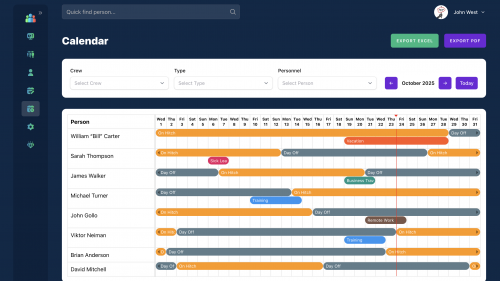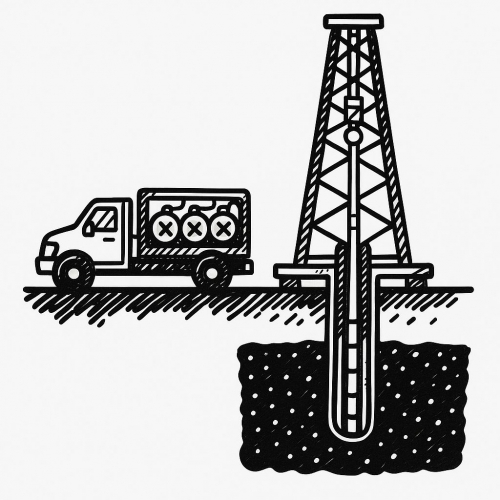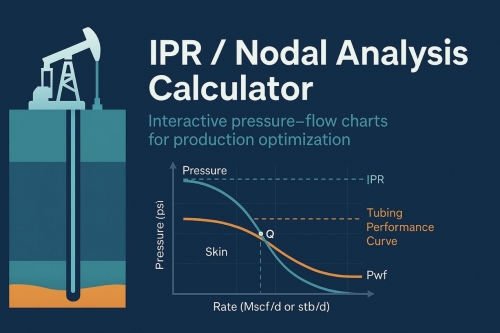Getting injured in an oilfield accident can be a traumatic and challenging experience. Not only are you dealing with physical injuries and emotional stress, but you also have to navigate the complex process of seeking compensation for your losses.
Here is what you should know about how to file a claim and get the maximum compensation you deserve after getting injured in an oilfield accident.
Document Everything Right After Getting Injured in an Oilfield Accident
The first step is to thoroughly document the accident and your resulting injuries. This is important because having detailed records will help prove your case when filing an injury claim.
Here's what information you need:
-
Date, time, and location of the accident: Note the exact date and time when the accident occurred. Also document the oilfield location, GPS coordinates, well name/number, etc.
-
How the accident happened: Write a summary of how the accident happened and what caused it. Be as detailed as possible. Include the sequence of events leading up to it.
-
Your injuries: List all physical injuries suffered due to the accident. Document symptoms like pain, limited mobility, etc. Take photos of any visible wounds. Get copies of all medical reports, diagnosis tests, doctor's notes, hospital bills, etc.
-
Eyewitnesses: Record the names and contact information of anyone who witnessed the accident. Their testimony can support your claim.
-
Employer details: Note the name of your employer, supervisor, human resources manager, and any other relevant parties.
-
Incident report: Request a copy of the employer's incident report. Review it and note any missing or incorrect details.
-
Documents and evidence: Gather any documents, emails, texts, photos, videos, or other evidence related to the accident and injuries.
Having thorough documentation makes it much easier to prove your claim and get full compensation. Update records as you receive more medical care.
Report the Incident to Your Employer Soon After Getting Injured in an Oilfield Accident
After any work-related accident, you must promptly report it to your employer per company policy. This starts the official record of your claim.
-
Report immediately: Notify your supervisor as soon as possible after the accident. Verbally report details like when, where, and how it happened.
-
Fill out the report: Complete the employer's incident report paperwork. Describe the accident, injuries suffered, and medical treatment received.
-
Request documentation: Ask your employer for copies of the incident report, injury claim form, and all related documents for your records.
-
Report hazards: Point out any hazards, safety violations, or other dangerous conditions that may have contributed to the accident. This helps hold the employer accountable.
-
Updates: Provide regular updates to your employer about ongoing medical treatments, inability to work, recovery progress, etc.
Prompt reporting protects your eligibility for workers' compensation benefits. Avoid delays that could negatively impact your claim.
Seek Medical Treatment
Seeing a doctor promptly is crucial after any oilfield injury. Here's how to get proper medical care:
-
First aid: Get immediate help from paramedics or on-site medics if emergency treatment is needed.
-
Go to urgent care: For less severe injuries, visit an urgent care facility as soon as possible after the accident.
-
Follow up: Make an appointment with your primary care physician for further evaluation and complete medical records.
-
Specialists: Get referrals to see specialists like orthopedists, physical therapists, etc for treatment specific to your injury.
-
Inpatient care: If the injury requires surgery or hospital admission, follow all recommendations from your doctors.
-
Ongoing care: Follow treatment plans recommended by your doctors, like medications, therapy, checkups, etc.
-
Payment: To avoid billing issues, have your employer's workers' comp insurance pay for accident-related medical costs.
Prompt medical care builds evidence for your claim and prevents the worsening of injuries. Save all medical paperwork and follow doctor's orders closely.
File a Workers’ Compensation Claim
Workers' compensation provides benefits like medical care, lost wage replacement, and disability payments for on-the-job injuries.
Here's how to correctly file a claim:
-
Get the claim form: Ask your employer for the workers' comp claim form and instructions. Forms vary by state but require details about your employment, accident, and injuries.
-
Complete it fully: Provide complete, accurate details on the claim form. List witnesses. Authorize release of medical records. Get help from a workers' comp attorney if unsure.
-
Submit it promptly: File the claim as soon as possible, for most states within 30 days of the accident. Late claims may be denied. Send via certified mail.
-
Keep a copy: Maintain a copy of the completed form and all claim documents filed. Keep proof of delivery of the claim.
-
Follow up: Contact your claim adjuster to confirm the next steps. Cooperate fully with requests for medical records, testimony, evaluations, etc.
-
Appeal if needed: If your claim is initially denied, appeal within the prescribed timeframe and consult an attorney.
Correctly filing your workers' comp claim is the only way to get worker-related benefits. It also starts the process of seeking fair compensation if your case goes to court.
Gather Evidence Supporting Your Claim
The stronger your evidence, the more likely you'll get full compensation. Some key evidence types to collect after getting injured in an oilfield accident include:
-
Medical records: Gather doctor's reports, treatment notes, therapy plans, hospital stays, medications, etc. Show how the accident caused your injuries.
-
Expert opinions: Get written statements from doctors explaining how your work caused the injuries. Have them evaluate impairment levels.
-
Investigation report: Get a copy of any third-party investigation report about the accident from your employer or OSHA. Review details.
-
Test results: X-rays, MRIs, lab tests, etc. can show physical damage from the accident. Obtain copies.
-
Photos/videos: Pictures and videos documenting the hazardous work site, safety violations, and injuries can substantiate the claim.
-
Personnel file: Get records related to your training, safety, evaluations, disciplinary actions, etc. from HR.
-
Financial records: Document work time missed, lost wages, disability status, impaired earning capacity, etc. with pay stubs, tax returns, and other financial records.
-
Eyewitness statements: Have colleagues write down what they saw of the accident and work conditions. Their testimony can help prove negligence.
Back up your claim with as much documentary proof as possible. An experienced attorney can get more evidence through discovery.
Calculate Your Damages Based on the Impact of Getting Injured in an Oilfield Accident
Document all your accident-related losses to claim the full compensation amount. Types of damages may include:
-
Medical expenses: Total costs of hospitalization, surgeries, medications, devices, therapy, at-home care, and expected future care, that are associated with getting injured in an oilfield accident include.
-
Lost income: Calculate your lost wages from missing work while recovering. Also, project long-term reduced earning capacity if you cannot return to your previous income level or job.
-
Pain and suffering: There is no fixed formula for calculating this non-economic damage. Factor in physical pain, mental anguish, scarring, and loss of enjoyment of life-based on the impact of your injuries.
-
Disability: Permanent/partial disability impacts your future employment and requires very high damages. Consult your doctor on the precise disability rating.
-
Rehabilitation costs: Include expenses for vocational retraining, job placement services, and mobility accommodations if your injury prevents returning to previous work.
-
Wrongful death damages: For a fatality, consider loss of income and benefits, funeral costs, and loss of companionship based on the deceased worker's situation.
Discuss your full claim value with an attorney and account for every provable loss.
Negotiate Your Settlement
You can begin negotiating a settlement with the insurer once there is a reasonable estimate of the value of your claim. Here are tips to get optimal settlement:
-
Consult an attorney: While it is possible to settle a claim without a lawyer, this is often inadvisable. This also applies to oilfield accident cases. Therefore, to ensure that you get all the compensation you deserve, have an experienced lawyer from a top law firm like Zehl & Associates Injury & Accident Lawyers represent you in settlement talks to get the maximum payout possible. Most take cases on a contingency basis and so you won't have to worry about being unable to afford them.
-
Start high: Your initial demand should be higher than what you expect to settle for, accounting for room to negotiate down.
-
Assess reasonable value: Have your attorney use past case data, verdict records, and expertise to calculate the payout you deserve.
-
Get written offer: Insist any offers or counteroffers be provided in writing from the insurer. Oral promises mean nothing.
-
Consider non-monetary terms: Seek other settlement conditions like structured payments, continued medical coverage, and specialized equipment on top of lumpsum payment.
-
Avoid quick settlement: Rushing to settle before knowing the full extent of injuries could forfeit a higher payout later. But settling too late could mean smaller payouts.
-
Compromise strategically: Your attorney can advise which concessions to make or reject to maximize settlement, based on case specifics.
With smart negotiation tactics, you can recover fair compensation for your losses while avoiding the risks of trial.
Know Your Options If Settling Fails
If the employer's insurance company denies your claim or won't offer fair compensation through settlement, you have legal options to pursue benefits:
-
Request hearing: You can request a hearing with your state workers' compensation commission if your claim is denied. Present evidence supporting your claim to a mediator.
-
File lawsuit: With an attorney's help, you can file a personal injury lawsuit against negligent parties like the employer and manufacturers. This can result in higher damages than workers' comp alone.
-
Prove negligence: Your attorney must prove negligence for the injury, like lack of adequate training or safety gear and hazardous conditions to win the lawsuit.
-
Get discovery: In a lawsuit, your attorney can use the discovery process to get useful evidence from defendants, like safety audits, inspection reports, etc.
-
Let the jury decide: If the settlement negotiations fail, a jury will decide compensation. In such a case, your attorney must effectively present evidence and witness testimony to prove negligence.
-
Appeal if needed: If the verdict is unfavorable, your attorney can advise about grounds for appeal to recover damages denied by lower courts.
Even without a settlement, strong legal options exist to claim rightful compensation.
Conclusion
Suffering an oilfield injury can have devastating financial and personal consequences. While the claim process takes time, effort, and patience, knowing the right steps will help maximize your recovery.
With prompt accident reporting, thorough documentation, medical diligence, evidence gathering, and effective negotiation, you can obtain fair compensation for your losses and begin healing. Discuss your case specifics with an attorney to build the strongest claim possible. Don't delay or settle for less than you deserve.

%20(1).png)



